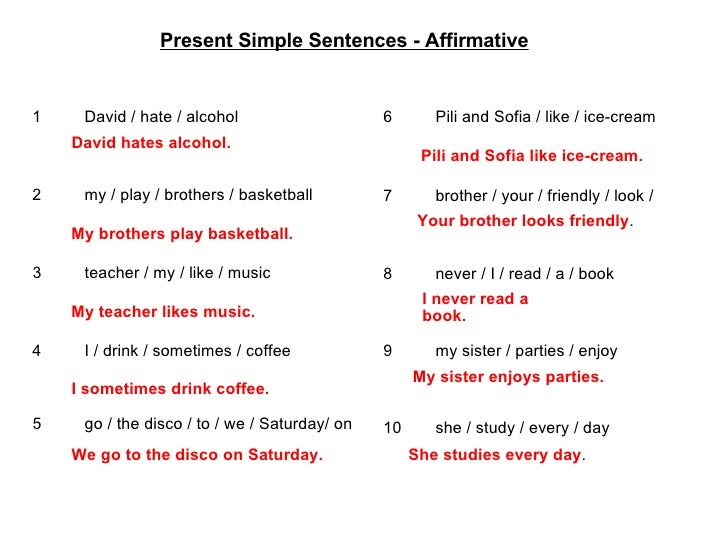

Using simple present tense to ask information questions using ‘when and what time’ Using going to the supermarket as an example of a repeated actionĪ habit does not have to be everyday it can be every hour, once a week or once a month ext. Kick and passes are repeated actions / expressing a habit. Let’s get started I wake up at 7:00 every morning. By reading and practicing these examples, you will be able to speak and write in this tense with confidence. Time expressions made up of one word are placed between the subject and the verb in positive sentences and questions and between the. Steven Gerrad kicks the ball and passes it back to is keeper In this blog post, you will find 40 sentences that use the Simple Present Tense. The most common time expressions in the present simple are: usually, always, never, on Wednesdays, every Wednesday, twice a week, once a month, in general, every other day.


Present tense for commentary on a sports game 3.Does he go to school 4.She writes an e-mail to her best friend. Using breakfast as an example of repeated actions 90 Sentences of Simple Present Tense, Example Sentences. ** Hint ** Notice that the singular plural verb she, he, it when in 3rd person singular has a -s She cuts hair and washes hair everyday = daily routines and repeated actionĮvery morning = everyday seven days a week, Monday morning, Tuesday morning, Wednesday morning, Thursday morning, Friday morning, Saturday morning, and Sunday morning. She works at the hairdressers = permanent state Present simple is also used for a permanent state, repeated actions and daily routines. The simple present tense is used to expresses habits an example is having a shower every morning. Learning simple present tense to express present time What will I learn from the lesson, learning simple present tense to express present timeĭuring this English lesson you will learn about what simple present for everyday activities, permanent states and using present tense to ask information questions ‘when and what time’ What is simple present tense?


 0 kommentar(er)
0 kommentar(er)
